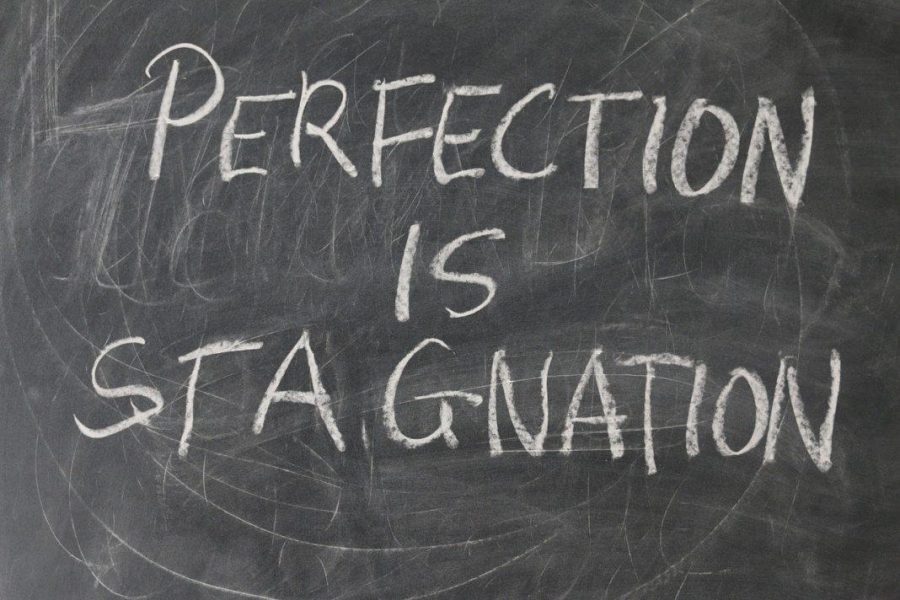“Fail. I cannot fail. Failure is for people who are weak, people who can’t pull themselves up by their bootstraps. If I fail, I am nothing. If failure makes its way into my life, the people I care about most won’t love me anymore.”
These types of thoughts roll through a perfectionist’s mind regularly. They often base their worth on whether they perceive themselves to have failed based on unrealistic expectations. It is time perfectionists release themselves from this relentless fettering nuisance.
Perfectionism can be described as accepting nothing below impeccable, foolproof or matchless. This is a plague that affects many of us. We want to be the best at everything we do: be competitive in our field, look the best, have the best. Unachievable ideals kill self-efficacy and confidence. While appearing perfect on the outside, perfectionists are crumbling on the inside. Living like this day after day creates a sense of dread, anxiety and fear. Extremes are never beneficial, so let us find a way to redeem ourselves from the perfectionistic extreme.
What happens when a reasonable goal becomes unobtainable? It seems a daunting feeling of guilt and of being inadequate sweep through a person’s mind. Does the goal actually become unobtainable, or does perfectionism mask the reality of not being able to obtain an impeccable result from the start?
I think our best is completely conceivable and it is arguably our own current perfection. If we are giving our best then we have achieved our highest level of ability for the time being. Interestingly, this also means that improvement is constant. An unrealistic obsession with perfectionism prevents someone from feeling successful by making its martyr feel they should be able to accomplish something quickly and without difficulty or error. This is perfectionism’s greatest myth, as such results are usually unattainable.
A common saying, “If I can’t do it well, I won’t do it at all,” proves this kind of thought process is detrimental to achieving anything. Waltzing through every task without effort and with perfect results is the type of image a perfectionist aspires to exhibit, leaving no room for the importance of vulnerability or learning to set in. If there were no effort it would appear there was no improvement necessary. Therefore, an opportunity to grow was lost. If we allow it to, improvement can be something that is motivating and exciting. Most importantly, it is crucial for finding ways to achieve and obtain success while also feeling successful.
Ironically these goals are exactly what the perfectionist is seeking, but likely won’t experience. Improvement does require time, reflection and vulnerability. In a TED talk called, “Tales of a Recovering Perfectionist,” by Adrianne Haslet-Davis, she becomes vulnerable by talking about her own perfectionistic traits. She repeatedly states that vulnerability is important for letting go of perfectionism. She no longer wanted it to control her, so she learned to control it and became a recovering perfectionist in order to find success.
Life is an adventure. Adventure is new, scary and exhilarating. It is full of surprises and opportunities. Failure will be among those things, and it makes an adventure an adventure. If life didn’t have failures it would be like riding a rollercoaster without turns, loops, inclines and declines — it would be boring and unfulfilling. Ultimately, we can either recognize our failures as opportunities to learn, or we can let the perfectionist inside dwell on them and never improve — the real failure. Let’s beat perfectionism by being vulnerable and finding a different foundation of worth.
letters@ustudentmedia.com
@TheChrony


